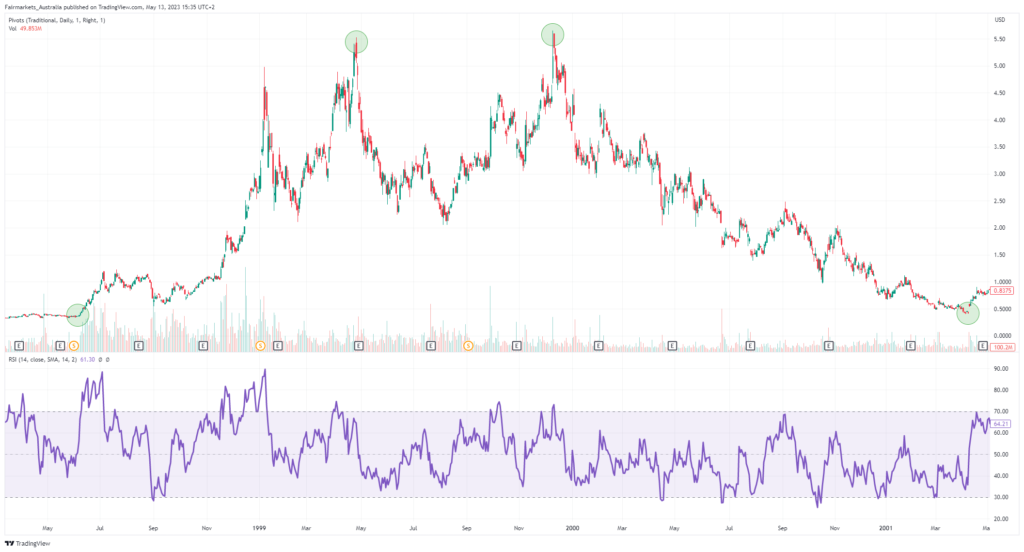Traditional finance suggests that individuals are rational, resulting in an efficient market where risk-averse individuals aim to maximise their profits. However, in recent years there have been an increasing amount of anomalies, confounding even the most experienced investors who have ignored the concept of human psychology and the effect that emotions can have on the human decision-making process. This psychological element makes the market inherently inefficient, leading to some surprising outcomes.
Human psychology falls under the scope of behavioural finance, which aims to explain how investors make their financial decisions beyond the scope of rationality, which could often lead to unpredictable outcomes. Irrational human behaviour leads to inefficiencies in the market, causing mispricing and adverse movements in the market that the efficient market hypothesis can not explain. One example of this phenomenon is the recent rise in meme stocks, which are often driven by social media hype and online communities. In many cases, the value of these assets becomes disconnected from the underlying fundamentals as investors ignore the use of rational analysis.
Numerous psychological factors drive this irrational behaviour. One of the more prominent behaviours is the fear of missing out (FOMO). When investors see others buying into certain assets, the fear of missing out on an opportunity can lead to an influx of buyers, driving the price to levels far disconnected from their actual value. One example of this behaviour occurred with Dogecoin, a cryptocurrency once created as a joke, which got endorsed by celebrities and online communities, leading to a rapid rise in its price without any fundamental backing, as investors did not want to miss out on the hype. As the price continued to rise, investors started taking profits, resulting in a massive reduction in the price back to its fundamental value. The graph below shows the volatility during the hype that skyrocketed the price before losing almost half the value in a couple of days.

Herd following is another behavioural concept that caused one of the most infamous anomalies in 2021. GameStop, a struggling video game retailer, became the topic of intense speculation and investment as a group of amateur investors on the social media platform Reddit encouraged its members to buy shares, sending the share price soaring. However, fundamentally, the company’s earnings decreased for numerous years as it faced significant headwinds in the industry. The buying influx was purely driven by hype and following the establishment. The rapid price rise caused a substantial disconnect between price and value, leading to an eventual downfall and a 90% loss of value from the peak. The graph below depicts the anomaly, where a large surge in volume caused immense volatility, resulting in painful losses for those who bought into the hype.

While these are two prominent examples of how human behaviour drives the financial markets, several other factors must be considered. The fear of regret, for instance, occurs when investors are hesitant to sell out of a loss-making stock as they look to avoid the regret of making an error in judgement. The prospect theory is another typical behaviour among humans, where investors demonstrate a different degree of emotion toward gains and losses. Realising a 10% loss will affect an investor to a greater extent than realising a 10% gain, causing them to hold onto losing positions or take on a greater degree of risk to avoid losses. Certain behavioural biases, such as anchoring bias, confirmation bias and overconfidence bias, are additional examples of investors not considering all the relevant information before making their investment decisions.
Fear and greed are two of the most potent psychological drivers of investment behaviour. The dot-com bubble is an example of how the excitement around the development of the internet and technology led to a large inflow of investments in companies with little to no profits that have yet to generate significant cash flows, as the greediness of investors drove the share prices of technology companies into the roof. Ultimately, the optimism was unsustainable, as valuations became disconnected from the valuations, leading to a burst of the bubble. Suddenly, greed turned to fear, causing a large selloff in these overvalued companies. The graph below shows the movement in Amazon’s share price from 1998 to 2000, as investors flocked into the company, just to sell it off drastically a year later.

The psychology of investing is a complex subject, shaped by various cognitive and emotional factors. The irrational human behaviour makes the market inherently inefficient, but it can also open up a range of opportunities for rational investors to take advantage of. By focusing on fundamental research and avoiding the traps of emotion, fear, and greed, investors can stay disciplined and focused on their long-term investment strategy to achieve their financial goals.

